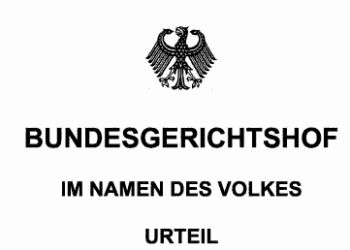The 4th Chamber of Commerce of the Regional Court Munich I, which among other things specializes in the law against unfair competition, has banned the apps “UBER Black”, “UBER X” and “UBER Van” for violation of the Passenger Transportation Act in Munich.
In 2018, the BGH had already prohibited the “Uber Black” app in the version that was available at the time (Case No. I ZR 3/16). In the case at hand, a cab operator from Munich also filed a lawsuit against UBER before the Regional Court of Munich I and has now been predominantly proven right.In the opinion of the Regional Court, the three apps of the defendant continue to violate the Passenger Transportation Act even at the time of December 02, 2019 (date of the last oral hearing) in their version underlying the proceedings.
According to & 49 para. 4 sentence 2 PBefG, rental cars may only carry out transport orders that are received at the operator’s place of business or at the operator’s home. The rental car company shall record the receipt of the transport order in its books; the record shall be kept for one year. After the execution of the transport order, the hired vehicle must return to the place of business without delay, unless it has received a new transport order from its place of business before the journey or by telephone during the journey (& 49 Para. 4 Sentence 3 PBefG).
Various witnesses confirmed to the Chamber’s conviction at the hearing before the Munich I Regional Court that the defendant was still not in fact complying with these requirements. With its current model of apps, the defendant at least accepts that its drivers retain the decision-making authority over the respective order and not the rental car company, according to the district court. The fact that the defendant’s drivers could already see potential passengers by means of the app before the rental car operator had intervened also led to the drivers going directly to the passengers – without observing the statutory duty to return. Both would constitute a violation.
In its defense, Uber had argued, among other things, that its actions had been agreed with the relevant regulatory authorities. However, this was not sufficient justification for the Munich I Regional Court, because the defendant was unable to provide express permission from the relevant authorities. Only because of vagueness a part of the claims, which concerned alleged confusion with cab traffic and was directed against the three UBER versions, was dismissed.






















